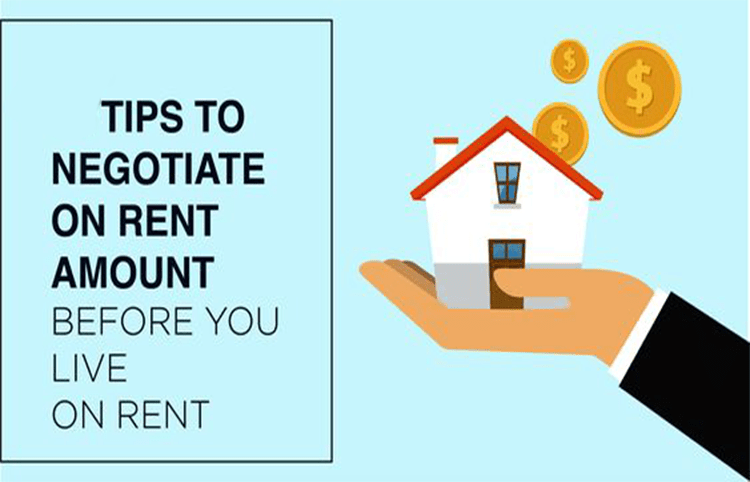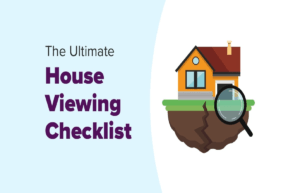Nobody likes to pay extra for anything. When you are searching for an condo or a domestic or a business property for rent. You do not favor to spend extra than your budget. Here are some methods you can go about negotiating your hire price. Every tenant need to understand these pointers as to how you can provide your landlord a desirable motive why they mustn't increase your hire and ask if they are open to negotiating rent.
Ask your landlord if he is open to negotiating rent
Having a dialog is the excellent answer to any problem. Talking with your landlord face to face can assist remind him that you’re greater than a month-to-month lease check. Similar is the case indeed with your landlord for negotiating rent. You want to continue to be assured and recognize that you want to speak without delay to him/her and share your worries with the lease being raised. Give your landlord a suited cause why he/she shouldn’t increase your lease and ask if they are open to negotiating rent. This will no longer solely assist you persuade them and draw their interest to your trouble however will truely construct a wholesome relationship which is a critical aspect for your lengthy time period remain at his/her place.

Be polite
Some humans suppose negotiations are the time to be aggressive. But recognize there is a distinction between being assured that you are a ideal renter and being rude. This is (hopefully) the commencing of a long-term relationship with your landlord. Be well mannered and professional. You have the proper as a renter to negotiate lease — however diplomacy and tact are how you’ll seal the deal.
Prove your really worth as a tenant

If you pay your hire on time, you would possibly have excessive probabilities of negotiating lease with ease. You’ve been a top tenant, Remind your landlord of your well timed repayments and any more work you’ve performed to keep your unit. It might also additionally assist to inform your landlord that you in reality prefer to continue to be and you’re now not one of these tenants constantly searching for the subsequent fine rental. You are committed.
Ask the landlord for negotiating lease as a new tenant
Discuss with the landlord if they are inclined to discuss lease prices. If you’re negotiating the fee for a new place, it’s vital to recognize who you are speakme to. A massive property business enterprise is much less in all likelihood to negotiate terms, whilst an impartial landlord has extra leeway to exchange prices. If you’re going through a lease increase, begin the dialog at least a month earlier than your rent ends so your landlord has ample time to think about your provide or, if want be, you have time to make different plans.
Highlight your strengths as a tenant
If you’re searching for a new place, make certain to inquire about lease concessions. Rent concessions are advantages supplied through the landlord to tenants such as move-in specials. You can additionally exhibit you’re financially secure by way of supplying the landlord a few concessions, such as paying a few months of hire in develop or signing on for a longer rent which saves the landlord cash in turnover. In the case of a lease increase, you have to remind the landlord what reliable, accountable tenant you’ve been. If you’ve constantly paid your lease on time, are courteous to different tenants and have stored the property in true shape, make certain your landlord is aware of it. It can assist show your worthiness and provide them an incentive to maintain your present day rent.
Offer to give up the ease in the summer
Landlords be aware of the summer season is generally an less difficult time to locate tenants. Since most human beings have extra bendy schedules then, such as lately graduated university college students searching for first apartments, there are truely greater human beings searching for condominium spaces. Offering to stop your rent in the summer time can be an appealing alternative for a landlord, and they may be inclined to shave expenditures in trade for the handy give up date.
Research the property’s cost comprehend the market
Much like different markets, the condominium enterprise too has its fee affected by means of the contemporary market conditions. Depending on the demand and provide chain, it may additionally have regularly occurring rate raises too. This is the purpose why you ought to first do your lookup about the market, and then reflect onconsideration on negotiating your hire with your landlord. Remind your landlord of the apartment costs round you. Check in with your neighbors, ask friends, and lookup flats and common hire phrases in your area. It may also be viable to negotiate a much less sizeable make bigger when you’re capable to cite common condo charges round you. Consider if the hire is past the genuine well worth of the prevailing market. Research lease prices with the aid of speakme to different landlords or neighbors in the area. Knowing common property expenses and the frequency of hire hikes in the nearby may additionally supply you leverage. And if your landlord has a raised hire even if the market prices are down, you ought to think about asking him to limit your rent. This must work for you as your landlord wouldn’t desire you to searching for different gamers in the market.
Negotiate directly, comply with up in writing
Although negotiations commonly work pleasant when executed face to face, all through instances you can have the dialog on the phone. Remain calm, well mannered and expert at some point of the dialogue – in no way impolite or defensive. Follow up the dialogue inside 24 hours with a short e mail thanking them for the assembly and reiterating your “ask.”
Propose an prolonged rent agreement
For some landlords, longer affiliation with a tenant would possibly have extra really worth than an elevated rent. The assurance that the condo would no longer be vacant, is reassuring. Most rent agreements are signed for one year. However, if you do no longer have any plans to relocate in the instant future. Showing that you sketch to continue to be in your condo for a good sized size of time can exhibit that you’re a steady investment. If the rent is annual, provide to prolong it to 18-20 months in alternate for preserving your contemporary rent, you ought to possibly think about a two or three-year settlement with your landlord. If the landlord is aware of he/she won’t have to take a threat with a new tenant, this may want to be a accurate compromise.
Leverage different houses amenities
Here’s the place your diplomacy honestly wishes to shine. A proper argument for reducing lease is that different locations in the region have greater to provide for the equal or decrease rent. For example, you would possibly give an explanation for how you’d absolutely love to hire this rental due to the fact it’s so shut to work, however then again, a constructing throughout city affords a pool and a health club membership for the equal price. This can assist the landlord see how reducing hire will assist you make your decision.
Be open to compromise
Unless you’re sincerely unwilling or unable to have the funds for the hire rate, advocate a compromise quantity that you can afford. If your landlord is asking too a good deal lease from you, think about putting a positive quantity from your quit and attempting to persuade him/her to do the same, the apartment settlement between a landlord and a tenant is bargaining too! For instance, if the hire is $100 greater than you’d like, provide to pay $50 instead. Back up your provide by means of citing your lookup findings and focusing on your steadiness as a tenant.
Have a backup plane
If you’re searching for a new place, you ought to have extra than one apartment, residence or condominium on your radar. Banking on a landlord growing lease fees can be risky, particularly if you have a set date you want to cross out of your ancient place. There are usually probabilities that in spite of all the advances from your end, negotiating hire with your landlord will by no means come to terms. In such cases, you want to have a backup layout organized which will permit you to suppose past negotiations. Your plans can consist of both searching out for higher lodging which will come in your finances or even getting your self a roommate to share your rent. If you’re going through a hire increase, you have to determine if you’d be inclined to pay the greater fee simply in case negotiations don’t go as planned. If you are in reality unwilling or unable to be given the new rate, it’s a top notion to begin discovering new apartments. If you determine to continue to be and pay greater every month, you can request property improvements to make the enlarge extra palatable, such as repainting the partitions or updating the landscaping.




